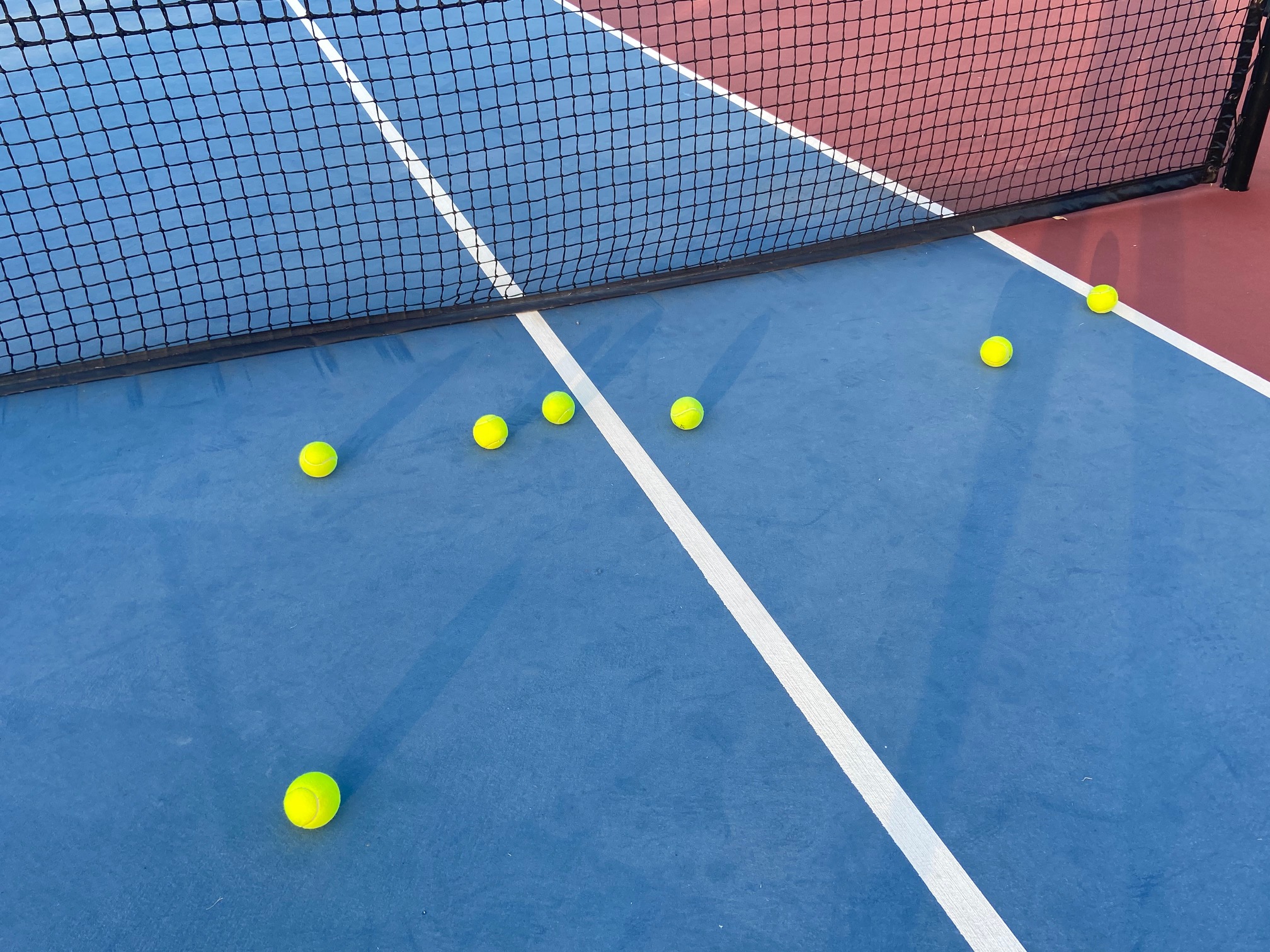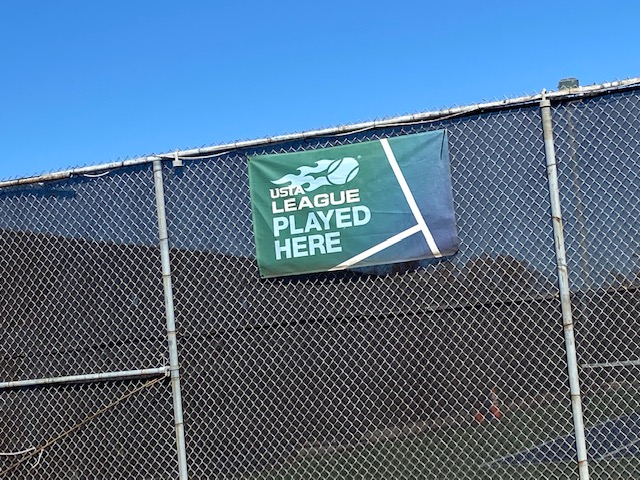Social media was full of outrage last week after China’s Zhang Shuai retired from a match in tears against Amarissa Toth during the Hungarian Grand Prix. In fact, some of the commentary and news coverage has been so incendiary that it quickly became a rules situation that was impossible to ignore.
Whenever I write about a rules drama, I try to watch the entire match if it is available. While controversial rulings and unsportsmanlike incidents theoretically happen in the moment, the full context often matters significantly. I strongly suspect that most of the people gracing the world with their opinions haven’t bothered to watch the match or even understand the actual sequence of events that unfolded.
This situation is a great reminder that viewing an out-of-context 5-second clip on social media and immediately rushing to judgment is a bad practice. For anyone who bothered to watch the match, the narrative vilifying Toth simply doesn’t fit what happened.
To set the stage, the Hungarian Grand Prix is a WTA250 tournament, one of the tour’s lower rungs. Zhang was the #2 seed but has been on an extended losing streak in singles. After making it to the Round of 16 at the Australian Open, Zhang won a match at Lyon against Madison Brengle on January 31 and has not won a singles match since.
Amarissa Toth is a Hungarian player who is currently ranked outside the top #500 on the WTA tour. In fact, this is the first time she made the draw at a WTA tour-level event. Prior to the Hungarian Grand Prix, her last attempt to make a WTA main draw ended during qualifying at the Budapest Open in September last year. Her main draw wildcard into the Hungarian Grand Prix was an absolute gift.
On paper, Zhang should have wiped Toth off the court. However, it wasn’t happening. From my perspective, Toth appeared to be playing like she was just happy to be there with nothing to lose. Zhang’s play was wildly erratic throughout the match’s first (and only) set. She was playing like a player on an extended losing streak against someone that she shouldn’t lose to. The score was tight and so was Zhang.
When I watched the full match, I was looking for officiating decisions or conflicts between the players as a pattern of escalating tension. There really wasn’t any. There were a couple of balls on her own baseline that Zhang thought might have been out. However, she returned those shots, continuing the point. She either tried to appeal or complain to the umpire on one occasion, but didn’t have any basis for a mark inspection since she didn’t immediately stop the point to challenge the call.
At 5-5 in the first set, Zhang hit a crosscourt that looked like a clean winner but a linesman called it out. When the umpire came down from the chair to inspect the mark, she upheld the out call. Based on the many replays of the ball bouncing on the court, it looked like it clipped the line. Additionally, the closeup shots of the area where the ball landed had only one plausible mark that also looked like it caught at least half the line.
I can certainly understand why Zhang thought it was a terrible call. It probably was.
There have been calls on social media that the chair umpire should be suspended. That is ridiculous. Umpires and line officials miss line calls all the time. There are many instances when the umpire has come down from the chair and inspected the wrong mark. There are countless clips of players and umpires arguing over whether the correct mark was in or out. Bad calls happen.
Zhang did not accept the decision and asked for the tournament referee. The chair umpire refused that request because, per the ITF Rules of Tennis, the referee cannot overrule that call. Here is an explanation of the rule from one of my previous posts on that topic.
In officiated matches, tennis players have the right to call the referee to court if they disagree with the umpire’s interpretation of tennis law. Unless the referee is sitting on-court, the chair umpire has the final decision authority on questions of fact that might arise during the match. The referee may only rule on interpretation of tennis law when summoned to a court.
Excerpt from “Calling the Referee“
A bad line call is a question of fact rather than an interpretation of tennis law. The chair umpire was correct in telling Zhang to play on. However, Zhang refused for an extended period of time. Many sources said the crowd was out of hand, and racist comments were made. Based on the crowd noise picked up by the court microphones, the word I would have used to describe the fan reaction was “patient.”
In fact, the only audible phrase I heard from the peanut gallery at all was someone yelling for a time violation to be called on Zhang. After the protracted delay in the match, that fan was raising a valid point.
The supervisor did eventually arrive at the court and refused to inspect the mark. It would have been a travesty if she had done anything else. Per the ITF Rules of Tennis, it was impossible for the supervisor to overrule the call because it was a question of fact that she did not witness. Consequently, the social media calls to suspend the supervisor and tournament referee are completely unwarranted.
Toth has been heavily criticized for some of her subsequent actions in this episode. However, it is important to note that up until this point in the narrative, Toth had not done anything unsportsmanlike. She didn’t make the bad call, nor was she responsible for Zhang’s meltdown.
Looking at this from the other end of the court, this drama can certainly break the concentration of either player. A young player who was playing very competitively in what would have been her best-ever professional win would likely be especially susceptible to a loss of focus. It is not ridiculous to think that the situation was completely unfair to Toth up until this point.
A few people have criticized Toth for not conceding the point after the bad call. However, it isn’t clear that Toth had a good view of where the shot landed. In any case, I think that it is a pretty tall ask to expect a player in her situation to question a close call that happened to go in her favor.
Toward the later stages of the delay, Toth was visibly laughing as Zhang was arguing with the supervisor. Under the circumstances, it is uncharitable to chalk that up to malice. Laughing may have been her way of easing her own tension over the ridiculous situation.
Eventually, Zhang consented to play another point which she lost. It was only after that occurred that Toth crossed the line into unsportsmanlike behavior. However, what she did wrong is not what has been bandied about on social media.
Rubbing out ball marks is a perfectly legitimate thing to do once the umpire has inspected the mark and the point is decided. Additionally, a subsequent point had been played. It wasn’t that Toth rubbed out the mark, but rather how she did it.
In my local vernacular, Toth had a “sh*t-eating grin” on her face as she did it. It seemed clear that she intended that action to send Zhang into another tailspin, and that is exactly what happened.
Any claims that Toth erased the ball mark illegally are simply wrong. The inspection had already occurred and a subsequent point had been played. Additionally, Zhang did not immediately retire from the match after Toth rubbed out the mark. That game was completed and Zhang asked to see the Dr. during the changeover. Her declaration that she could not continue came after all that.
The on-demand replay of the match included Toth’s post-match interview. I was watching that closely because many sources criticized Toth for her celebration and comments. I didn’t see anything concerning. The English segment of her on-court interview seemed appropriate for the situation. She expressed excitement over the tour-level win and wished that it had been under better circumstances.
In the aftermath, Toth issued an apology for rubbing out the ball mark, which was certainly warranted. She also apologized for celebrating after the match. I would not have taken issue had she omitted that from her litany of regrets. Under the circumstances, I think that Toth has made the proper atonement in this episode.
I am having a more difficult time understanding the perceived injustice to Zhang. While an arguably terrible call was made against her, that is something that all players experience from time to time. You just have to move past it. Zhang was the instigator of the majority of the drama that occurred. Instead of calls for her to apologize for her behavior, she has experienced an outpouring of support.
This is a real example of why watching the entire match rather than a couple of tweets with animated gifs is important before forming an opinion. The narrative simply doesn’t fit the facts.




I fully agree with everything said on this column. Also I would like to point to the deplorable action taken by Zhang afterwards. She wanted to get sympathy for her miserable behavior by employing the social media. When there are so many armchair quarterbacks out there especially on the social media, what happened afterward is expected if ridiculous. One thing I don’t understand is the support of Zhang by the fellow players. Shouldn’t they know better?
This is another good argument for having the Hawk-Eye challenge system even at tournaments on clay. I think it’s crazy to have referees climbing down and examining smudges in the dirt when there is a good system available. Also Hawk-Eye doesn’t care about the nationality of any of the players or where the match is being played. Hawk-Eye would have prevented this whole situation.
Bravo! Great post.
Always would recommend erasing a mark after a ruling has been made – either by an umpire or a player – although smiling as you do it is unnecessary.
Great post. Makes me want to go back and watch the entire match now!